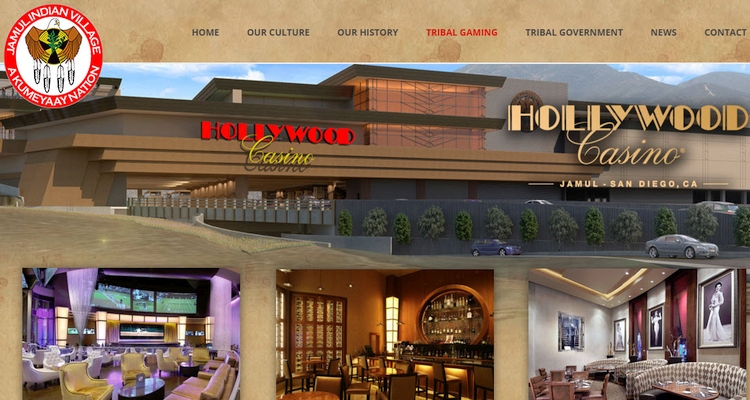Hollywood Casino Jamul-San Diego opened to large crowds on Monday after having been planned by the Jamul Indian Village (JIV) since the 1990’s.
Located just off State Route 94 about 20 miles east of downtown San Diego, it is the closest tribal gaming facility to the southern California city’s cultural, financial center, and central business district. After the National Indian Gaming Commission (NIGC) approved Penn National Gaming’s management of the facility that they developed with, and on behalf of the Tribe, the $400 million casino celebrated its grand opening on Monday. In addition to the crowds, the long-awaited opening increased traffic on the semi-rural roadway already congested due to construction.
In the tribe’s news release, Chairwoman Erica Pinto said that in addition to the more than $90 million in funding the tribe agreed to provide over the next 20 years for law enforcement, fire, and other public safety efforts for San Diego County, it also expects to provide $23 million for transportation and road improvements near the gaming facility. Pinto said, “The tribe maintains a longstanding commitment to the community,” and, “We are proud to fund roadway improvements and other essential services to make our community safer. These efforts are meaningful and important for our tribe and our neighbors.”
The tribe isn’t legally required to have a business agreement with San Diego County due to its sovereign nation status, nor did it need any support from the county to open its casino. However, Pinto said in April that the tribe wanted to do the right thing for the community and be a good neighbor.
Back in June, JIV and its partner Penn National Gaming, which through its subsidiaries, owns and operates more than 25 horse racing and casino gaming facilities throughout the US and in Canada, placed the final steel beam atop the much-anticipated casino. The topping off ceremony followed U.S. District Judge Kimberly Mueller’s ruling on May 15 in favor of the JIV after it ran into opposition from a Christian church that objected to the casino claiming that the land upon which the facility was built was not a “reservation” in the legal sense of the word and that the JIV did not constitute a “federally recognized tribe.”
The Jamul Action Committee or “JACJAMUL” along with the Jamul Community Church filed a lawsuit in 2013 suing the Department of the Interior and the NIGC. The lawsuit contested the gaming commission’s report which certified that the JIV owned ‘Indian lands’ that allowed them to set up gambling operations in accordance with the Indian Gaming Regulatory Act (IGRA). The JAC was disappointed with the court’s decision but promised that wasn’t the end and at the time confirmed with the church, that together they would continue to fight the case and take it to the 9th Circuit Court of Appeals (pdf). The JAC made good on its promise, however, after having filed several lawsuits, and others that may still be in process, the tribe received approval from the NIGC.
According to the JIV, more than 1,200 construction jobs and 1,000 local, permanent jobs were created by the project. The 200,000 square foot gaming facility features 1,700 slot machines, 43 live table games, eight dining and entertainment venues, and an eight-story below-ground parking garage that accommodates 1,800 vehicles.


